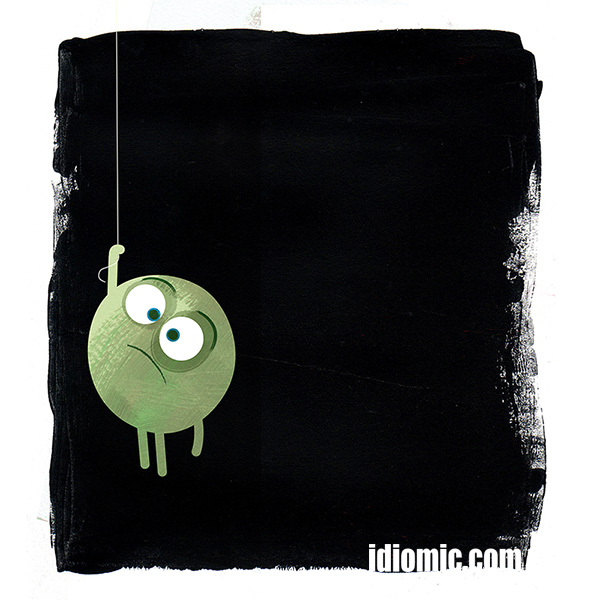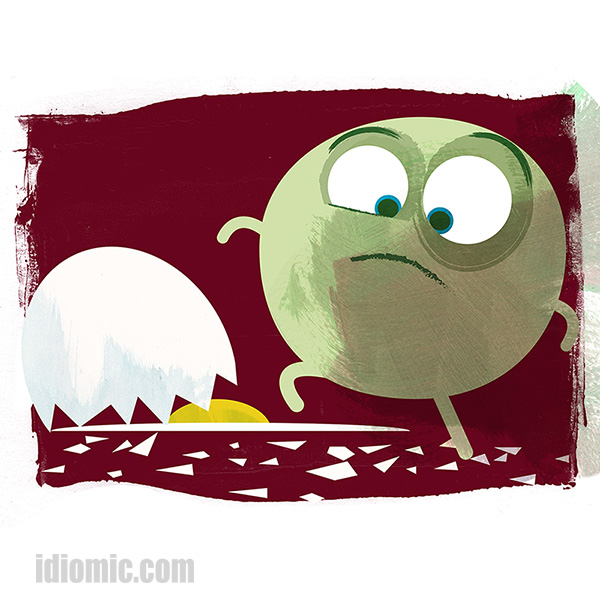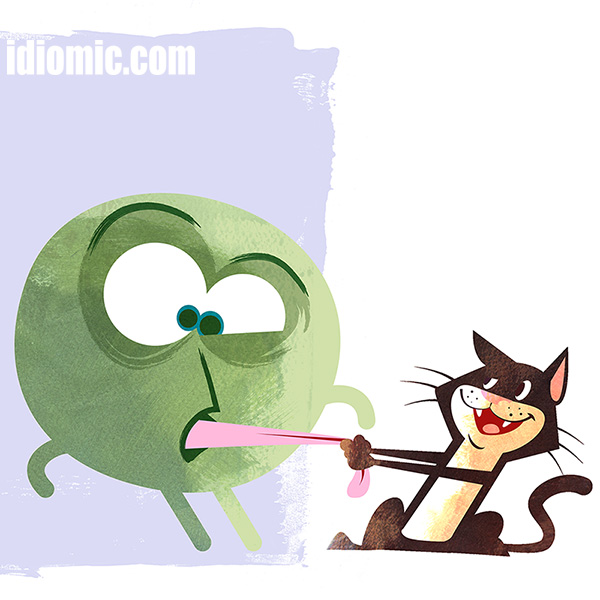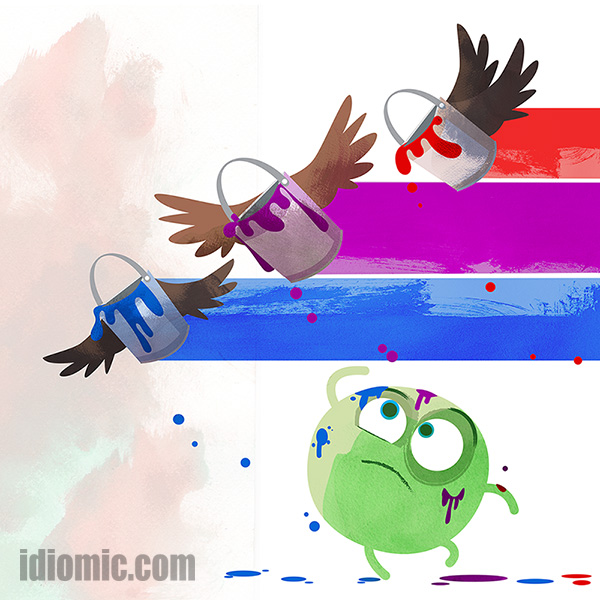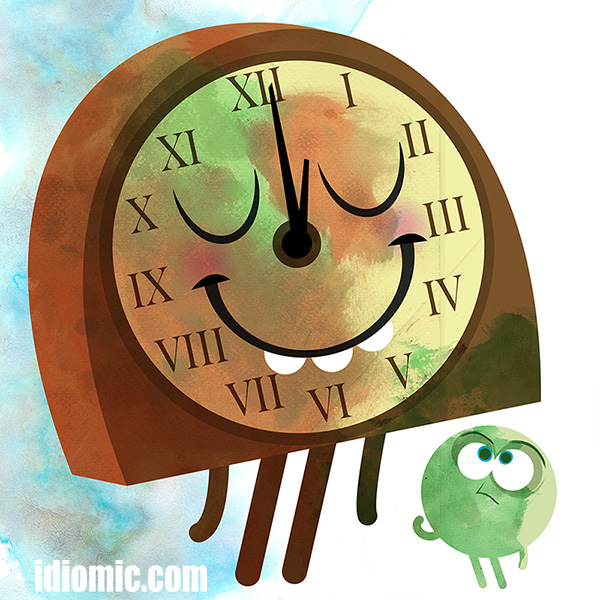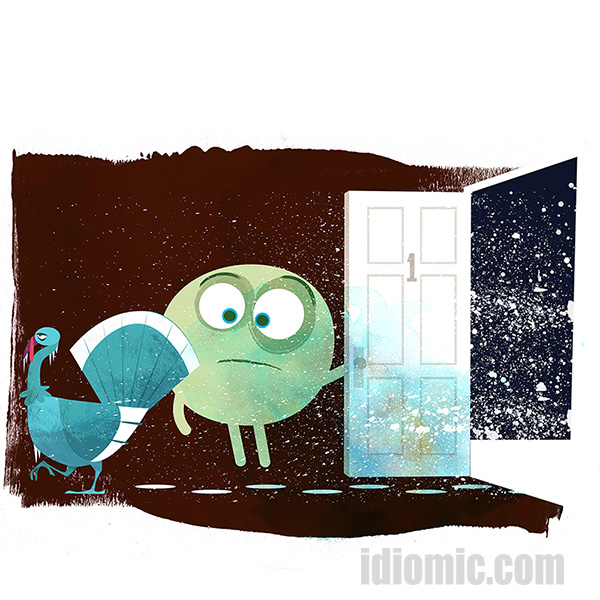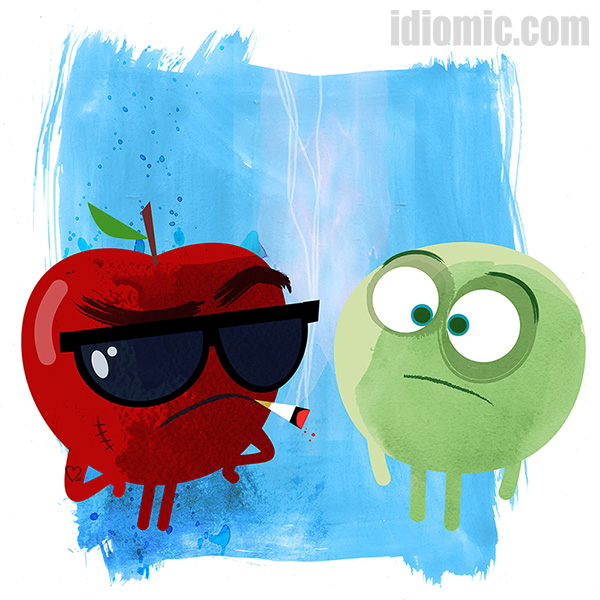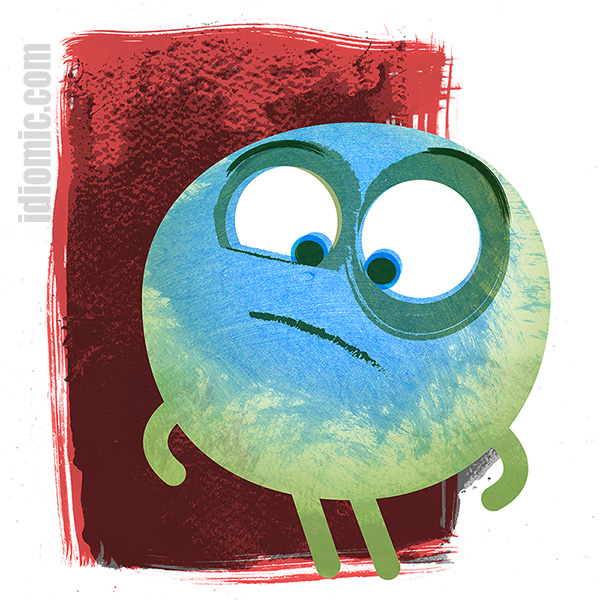Definition: To be in a precarious situation
Example: After his drunken antics at the wedding, Fred’s reputation was left hanging by a thread.
Origin:
This phrase refers to the Greek legend of The Sword of Damocles. The story goes that King Dionysius was annoyed by the constant pandering of one of his aides who went by the name of Damocles. He invited Damocles to sit upon his throne to feel what it was like to be king. It was an offer Damocles couldn’t refuse. However, upon taking his place, he discovered that Dionysius had hung a giant sword directly above his head. Point down. Hanging by a single horse hair. Damocles quickly found an excuse to allow Dionysius back to his rightful place.
The allegory of the tale was to show the constant threat in high politics, though the resulting idiom ‘hanging by a thread‘ later came to represent threat to almost any component of life, whether it be financial, social, or even life itself.
Iddy knows a few people he’d like to hang a sword over, but that’s besides the point.

